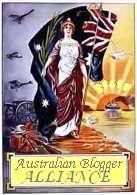Let's cut out the hypocritical compassionNovember 03, 2004
TODAY all eyes are on the US presidential election. Iraq and the war on terror are front and centre of the political battle between Republican George W. Bush and Democrat contender John Kerry. In 2000, Bush sold himself as a "compassionate conservative". Today, few would describe the US President that way. And that is a good thing because, let's face it, sometimes compassion just won't cut it. In a post-September 11 world, our compassion addiction is turning out to be al-Qa'ida's best friend.Indeed, whatever Bush's faults and mistakes, he has been refreshingly free of the kind of gesture politics that frequently pass for leadership. Not for Bush diplomatic inaction, the preference for tokens over genuine actions or the mawkish sympathies endemic to Western politics. Or at least not solely.
He has occasionally gone in for these stunts but, whether he wins or loses today, he will be remembered as a clear and decisive president. A man of action, not empty words and signs. And that is all too rare today.
These days the West prefers conspicuous compassion over action. Those most critical of Bush and coalition leaders Tony Blair and John Howard wear ribbons to show solidarity with their cause. In Britain, from London to Liverpool, people stop for a minute's silence to grieve for Ken Bigley, gruesomely murdered by terrorists in Iraq last month. And if not mainlining compassion, other feel-good gestures abound. The British newspaper The Guardian encourages locals to write individual letters to swing voters in Ohio, beseeching them not to vote for Bush.
In Australia, people write collective letters -- first 43 diplomats, then 56 doctors, then 380 academics denouncing the Iraq war. This is not to mock or trivialise their concerns. The polls in most Western countries suggest a deep anti-Bush sentiment. But apart from caressing the middle-class conscience, where do these gestures leave us on Iraq and in the war on terror?
Those critical of Bush rarely suggest a genuine alternative course of action. And sometimes the most well-meaning compassion can turn dangerous.
To understand why terrorists love the soft, caring side of the West, look more closely at Bigley's kidnapping and murder. It offers a lesson for all of us. So far, no Australian has confronted such horror. God forbid, should an Australian suffer as Bigley did, how we respond would be crucial.
Bigley's death was horrendous, barbaric, repugnant. It surely leaves a chasm in the lives of his wife and mother, his son and three brothers. But Britain's reaction was maudlin. So maudlin, it was counterproductive. His birthplace, Liverpool, fell silent. Churches, cathedrals, shops and homes observed two minutes of silence. Condolence books were signed. The municipal bell rang out 62 times -- for each year of Bigley's years.
Standing silent to grieve for the dead is a fine sentiment. But too often those who do so forget that hunting down the terrorists is the best way to honour all those who have died and suffered.
When Boris Johnson, editor of The Spectator and Tory MP, suggested that the over-reaction revealed "the mawkish sentimentality of a society that has become hooked on grief", he was hounded into a grovelling apology, enjoined by Tory leader Michael Howard to visit the offended people of Liverpool. Yet Johnson was right to point to the West's weakness, its schmalzy, misguided sentimentality. He was right to highlight the absence of national grief each time a British soldier is killed serving his country in Iraq.
Likewise, London's Daily Telegraph columnist Mark Steyn criticised the response of the British Foreign Office to Bigley's kidnapping. Suggest a willingness to talk to terrorists and you confer legitimacy on the head-hackers, Steyn said. You increase the likelihood that other Western infidels will face a equally horrendous death, he wrote. But it never made it into print. His editors, for the first time, pulled his column. Steyn is colourful. But he, too, had a point. Giving the terrorists air play, suggesting that lines are open for discussion, only assists in the "mainstreaming of jihad". Compassion -- even the most sincerely felt -- can backfire.
Recall that earlier kidnappings by terrorists in Iraq involved just one video -- showing the gruesome slaying of their victim. Then terrorists tried something different: prolonging their victim's agony to gain more air time. They put a caged and crouching Bigley on show for the world to see. Day and night television stations showed a distraught Bigley.
His pleading and crying tugged at our humanity and drew a response from the British Prime Minister. The British Foreign Office said lines of communication were open. But Bigley still died.
Media-driven compassion is hypocritical at best and dangerous at worst. Hypocritical because our compassion level is directly proportional to media attention. Dangerous because the ratings success of beheadings rewards terrorists. That is why they have become so frequent, with CARE International's 59-year-old head Margaret Hassan their latest propaganda tool.
Last week The Washington Times's Borzou Daragahi reported from Baghdad that members of the anti-US insurgency say their recent attacks have "a clear objective: the greater the violence, the greater the chances that President Bush will be defeated ... and Americans will go home".
Many in the West shared that objective. Today it may drive Bush from the White House. That would raise a real question. Are all of the West's armies powerless in the face of a terrorist-driven, media-fuelled compassion campaign? That will be what Osama bin Laden and his terrorist mates are counting on.






1 Comments:
Hmmm, not too sure how to take that Jack....a compliment or sarcasim?? I dislike Dick Cheney actually, so me as a speechwriter for him.....totally out of the ???
Post a Comment
Subscribe to Post Comments [Atom]
<< Home